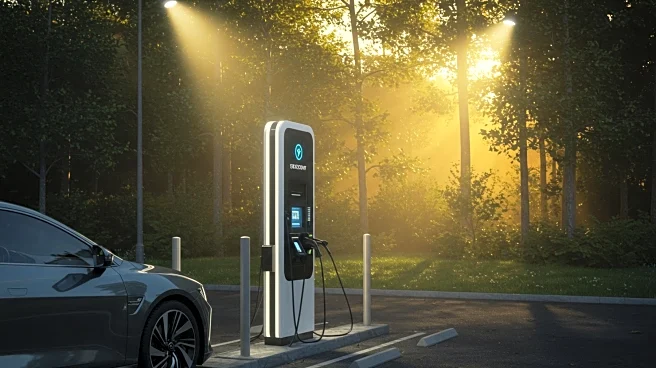What's Happening?
The Environmental Protection Agency (EPA) has proposed ending rules governing vehicle emissions by overturning its 2009 Endangerment Finding, which established greenhouse gas emissions as hazardous to human health. The proposal argues that carbon dioxide is not 'air pollution' as traditionally understood, and therefore cannot be regulated under the Clean Air Act. This move has been criticized by researchers and climate advocates, who warn of the potential negative impact on climate change efforts.
Why It's Important?
The EPA's proposal could significantly weaken climate change regulations, particularly those targeting vehicle emissions, which are a major source of greenhouse gases in the U.S. This decision may benefit industries financially but poses a threat to environmental sustainability and public health. The transportation sector is the largest source of direct greenhouse gas emissions in the country, and relaxing standards could exacerbate climate-related challenges such as extreme weather events and ecosystem disruption.
What's Next?
The proposal will undergo a public comment period, and climate advocates have vowed to challenge it in court if necessary. The outcome of this proposal could influence future environmental policies and the U.S.'s role in global climate change efforts. Stakeholders, including environmental groups and industry representatives, will likely engage in debates over the balance between economic interests and environmental protection.
Beyond the Headlines
The EPA's proposal highlights the ongoing tension between economic growth and environmental sustainability. It raises ethical questions about the responsibility of government agencies to protect public health and the environment. The decision may also impact international perceptions of the U.S.'s commitment to climate change mitigation.









